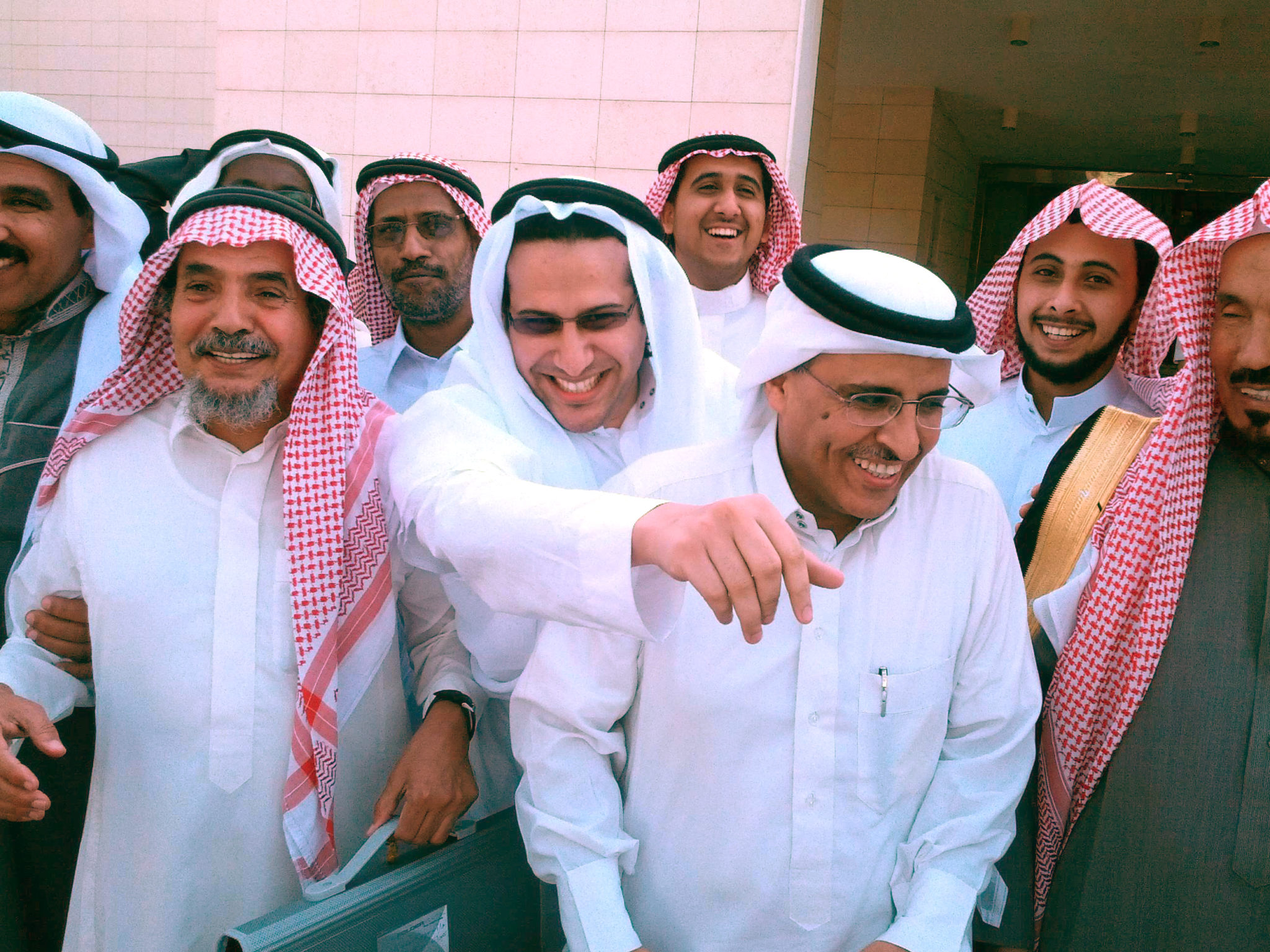Four years ago, on 6 July 2014, the Specialized Criminal Court sentenced human rights lawyer and activist Waleed Abu al-Khair to 15 years in prison, a 15-year travel ban, and a fine of 200,000 Saudi riyals (approximately USD 53,000). He was sentenced on spurious terrorism charges stemming from his free expression and association, human rights work and activism, and founding of an independent human rights organization. Abu al-Khair was one of the first activists to be sentenced under Saudi Arabia’s then-new 2014 counter-terror law. Since his conviction, more than a dozen activists and peaceful dissidents have been convicted under the kingdom’s counter-terror framework.
Waleed Abu al-Khair is one of Saudi Arabia’s most prominent human rights defenders. He has long advocated for increased political freedoms and a greater fidelity on the part of the Saudi government to international human rights standards. He wrote and signed numerous petitions demanding reforms and also spoke publicly to foreign media outlets about the Saudi government’s human rights violations. He also founded an independent human rights organization, Monitor of Human Rights, in 2008. As a human rights lawyer, he represented numerous clients who were victims of human rights abuses. Among them were prominent blogger Raif Badawi and members of the human rights organization the Saudi Civil and Political Rights Association.
Because of his activism and legal work, Saudi officials continuously harassed him, threatening him over the phone, summoning him for prolonged interrogations, revoking his license to practice law, and in one instance assaulting him. Despite this, Abu al-Khair continued his activism until authorities arrested him in 2012 for signing petitions condemning government corruption and human rights violations against the Shia community in the kingdom’s Eastern Province. The Saudi government tried Abu al-Khair in the Specialized Criminal Court (SCC), the kingdom’s notorious counter-terror court system.
The SCC sentenced Abu al-Khair to 15 years in prison, a 15-year travel ban, and a fine of 200,000 Saudi riyals, on charges including “offending the judiciary”, “communicating with foreign agencies”, asking for a constitutional monarchy”, participating in media [programs] to distort the reputation of the country”, and “incitement of public opinion against the public order of the country” – all related to his human rights work. The government initially detained him in Riyadh’s al-Hair prison, where officials held him in solitary confinement for one week. They then moved Abu al-Khair to Jeddah’s Bureiman prison. While in prison, he has been beaten. He has also been denied food, although he suffers from diabetes for which he needs special treatment and a special diet.
Saudi Arabia had established the SCC in 2008 to try terrorists, including members of al-Qaeda. But even as the SCC served as the kingdom’s counter-terror court, the government did not pass its first counter-terror law until late December 2013, five years after the establishment of the SCC. Under the law, which came into effect on 1 February 2014, the Saudi government began to use the SCC to convict human rights defenders and peaceful dissidents. Abu al-Khair was among the first activist to be tried in the SCC and under Saudi Arabia’s nascent counter-terror framework. But since then, the kingdom has used its counter-terror rubric to systematically suppress and imprison human rights defenders and activists.
Among those targeted have been prominent rights defenders and members of the Saudi Civil and Political Rights Association, the Union for Human Rights, and Adala Center for Human Rights, as well as Shia protesters and activists like Sheikh Nimr al-Nimr, Ali al-Nimr, Dawood al-Marhoon, and Abdullah al-Zaher, and Yusuf al-Mshaikhass. In every case, the government charged the activists with committing bogus terror crimes, including joining unlicensed organizations and distorting the reputation of the state, among other charges. Saudi Arabia must release all human rights defenders and activists who have been unjustly arrested and imprisoned because of their activism, including Waleed Abu al-Khair.





